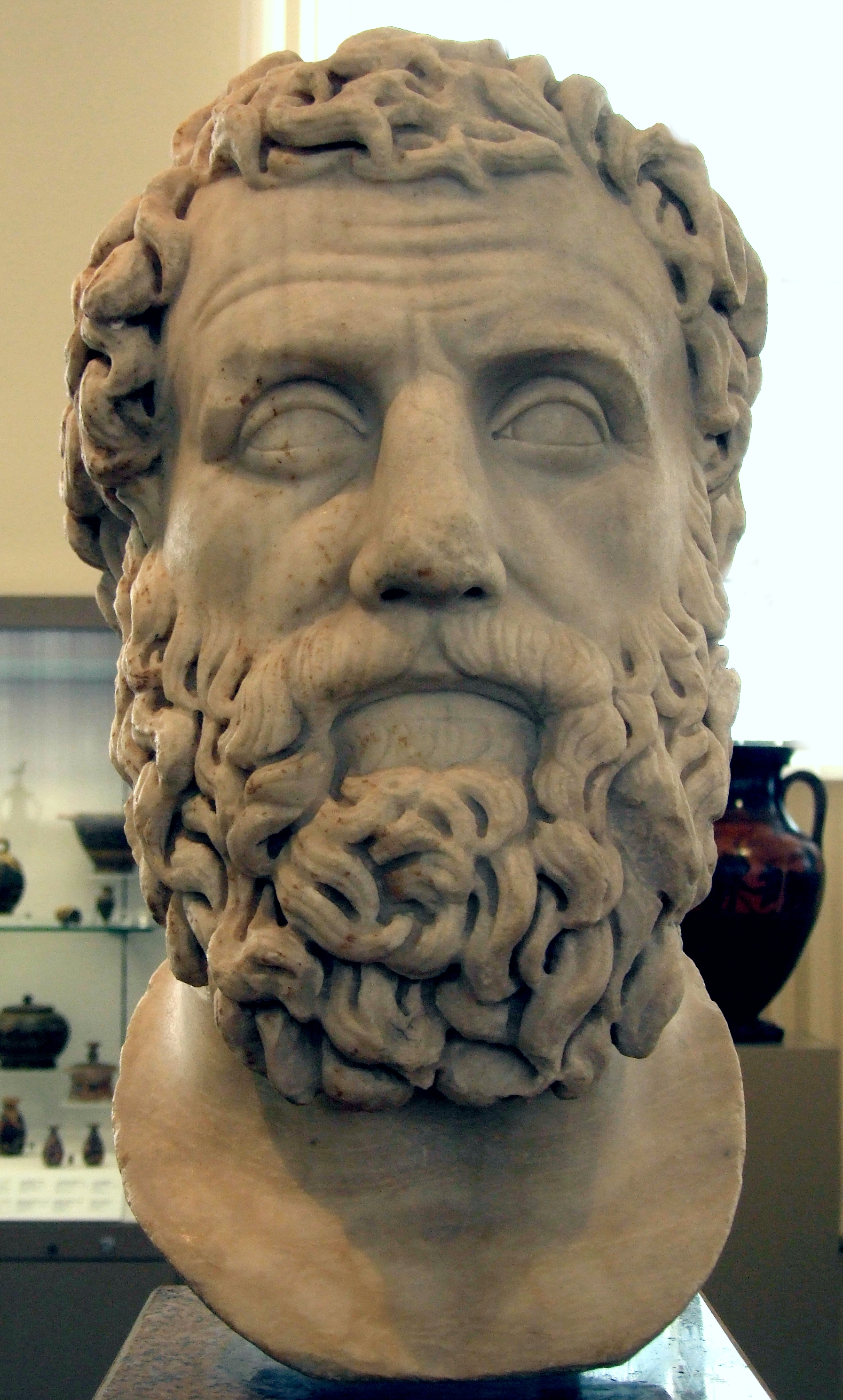Arkhilokhosz vagy latinosan Archilochus görög költő. Az európai líra egyik legnagyobb korai alakja, költőegyénisége.
Az utókor Arkhilokhosz életútjáról alkotott képe részint töredékesen fennmaradt költeményein alapul, de személyéről további információkkal szolgálnak a szülőföldjén, Pároszon emlékére emelt csarnokban, az Arkhilokheionban feltárt feliratok is. Élete feltehetően bővelkedett kalandos fordulatokban, s verseiből egy szenvedélyes ember bontakozik ki. A Magyar nagylexikon szerint i. e. 650 körül született törvénytelen gyermekként, apja a nemesi származású Telesziklész, anyja pedig egy rabszolganő volt. Ifjúkorában apja oldalán tevékenyen közreműködött a parosziak thaszoszi kolóniaalapítási terveinek megvalósításában. Egy előkelő paroszi polgár, Lükambész leánya, Neobulé iránt táplált gyengéd érzelmeket, és miután közeledése visszautasításra lelt, a legenda szerint gúnyverseivel öngyilkosságba kergette az apát és egykori kedvesét is. A mindeközben a thaszosziakkal folytatott küzdelmet váltakozó szerencse kísérte, végül érett férfikorában telepedhetett le az északabbra fekvő, gazdagabb szigeten. A feltevések szerint egy a naxosziakkal vívott csatában lelte halálát.
Művészi szemléletét a régi konvenciók elvetése és az új keresése jellemezte. Formai kísérletezései mellett verseinek tartalma és hangvétele is újszerűnek számított, elvetette a mitológiai utalásokat, és korábban sosem hallott szókimondással verselt az érzéki szerelemről, a szív fájdalmairól. Nevéhez fűződik több fontos lírai forma megteremtése, a görög–latin időmértékes verselésben használt egyik összetett sor, az arkhilokhoszi verssor, emellett az elégia és a iambosz műfajának népszerűvé tétele is. Harci és filozofikus hangvételű elégiáit disztichonban írta, fennmaradt gúnyverseinek jellemző verslába viszont a jambus.
Művészete sok tekintetben megújította a görög költészetet, az ókori kánonban Homérosszal vetekedő jelentőségű lírikusnak tartották. Átvette, használta és fejlesztette az epikus dialektust. Nem csupán egyiptomi papiruszokon maradtak fenn Arkhilokhosz-költemények, de lírája még a római császárkorban is népszerűnek számított.
Nem csak költészetének tartalma és hangvétele volt újszerű, hanem formája is: ő alakította ki a legfontosabb lírai formákat, az elégiát, a jambust stb.
A személyére és életére vonatkozó értesülések részint költeményeiből, részint egy Párosz szigetén talált feliratból származnak.
Egy költeménye:
Igen magas, vagy haj fodroskás
Kevély királyra nem tekintek:
Sem hogy szakállt leányi módra
Nyirbáljon: hanem hosszaska, horgas
Szárú, szeme sasos, nap sütötte,
Erős nyoma legyen, szive bátor.
Wikipedia
✵
680 i.e. – 645 i.e.
